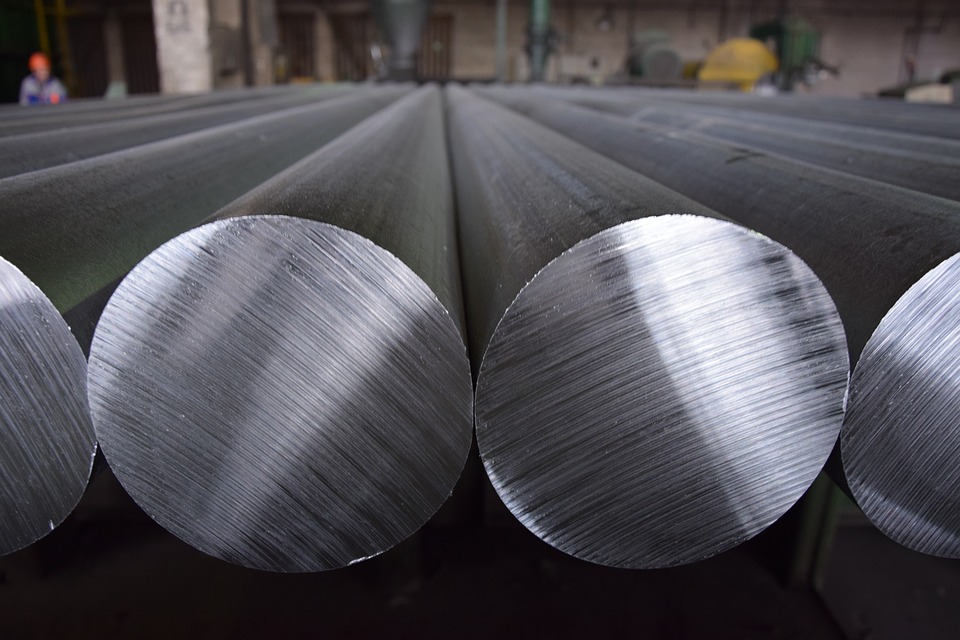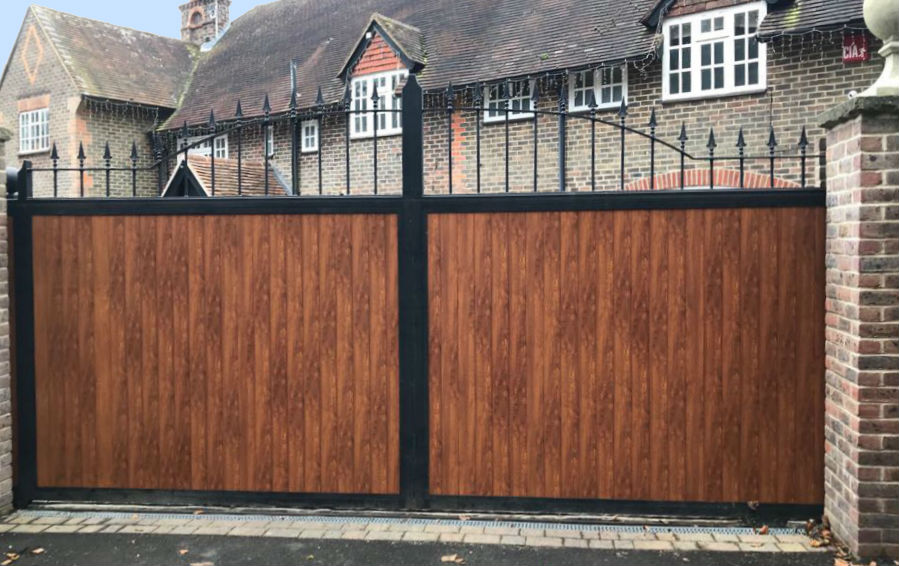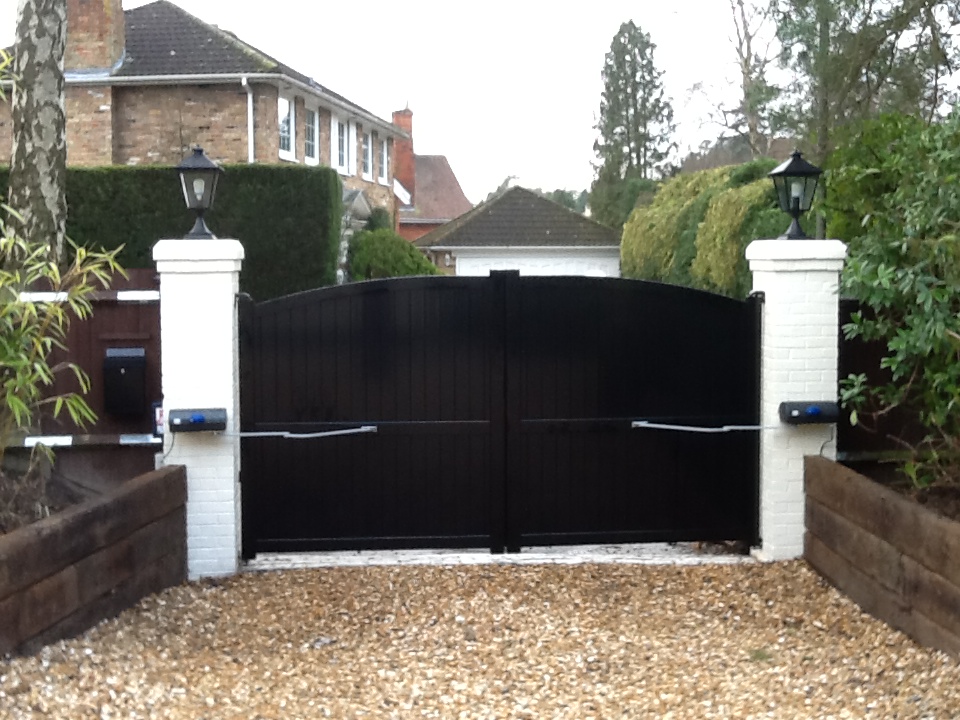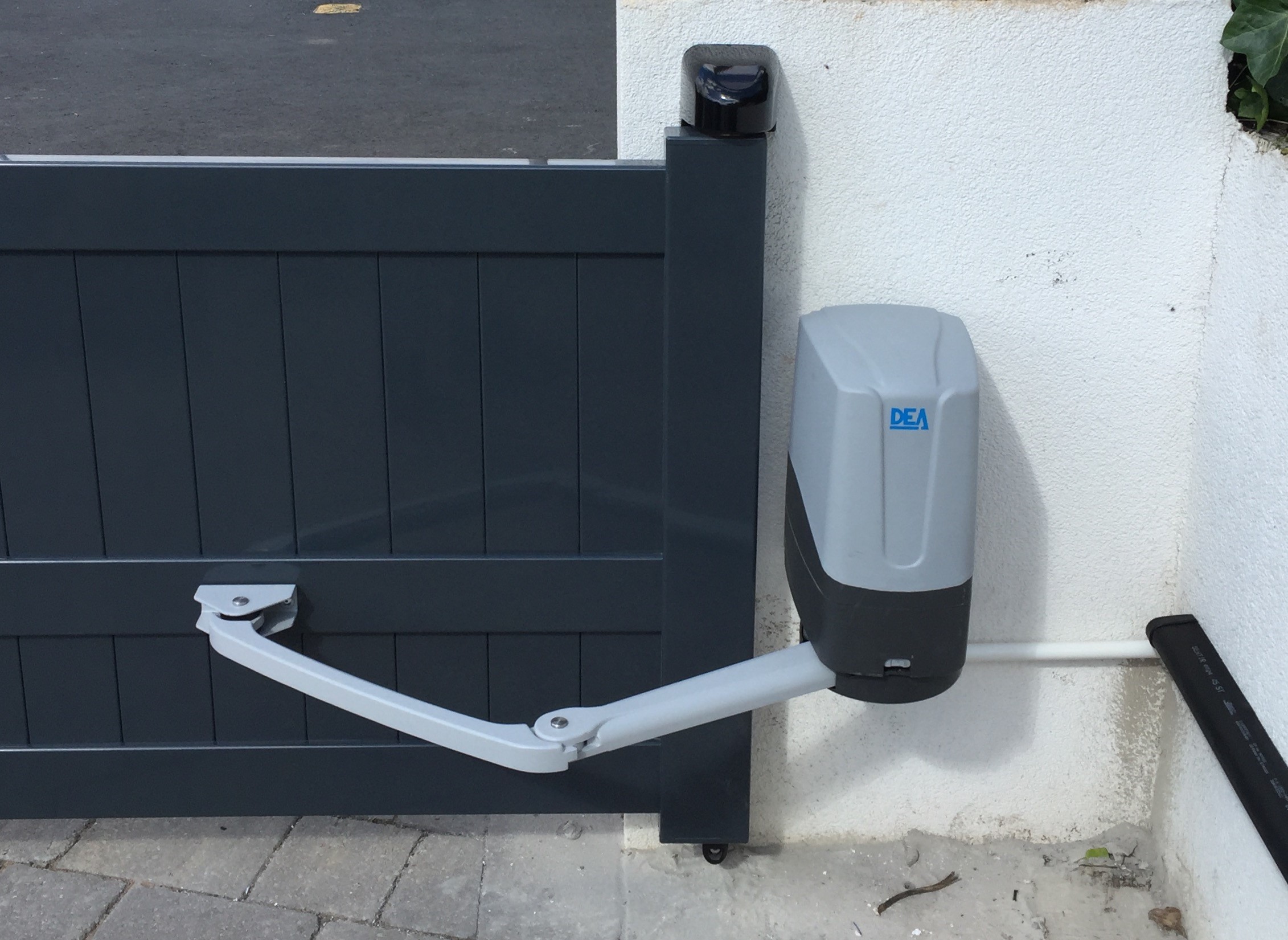-
Your shopping cart is empty!
Menu
Aluminium gates are a popular choice in modern design, but are they strong? We will examine the properties of aluminium, and its application in gate design, and provide a detailed analysis of its strength and durability.
Read our essential guide for homeowners thinking of buying driveway gates where we look into the resilience of aluminium gates.

In the quest for a strong gate that can stand the test of time, you'll find that the vast majority of aluminium gates offer impressive strength and durability, thanks to aluminium's high strength-to-weight ratio and anti-corrosion properties.
This makes aluminium gates exceptionally durable. When analysing the strength of aluminium in gate manufacturing, you'll be pleasantly surprised. Moreover, reinforced aluminium can further boost the gate's strength.
Despite being lightweight, these gates can withstand harsh weather conditions, making them a superior choice for durability. What's more, aluminium's resistance to corrosion ensures that your gate will maintain its strength for many years to come.
In gate manufacturing, aluminium truly shines, offering you a sturdy, reliable, and aesthetically pleasing option for the driveway gate on your property.
When it comes to evaluating the strength of aluminium versus steel for your gate, you'll find that the choice isn't as straightforward as you might initially think. Steel is known for being stronger than aluminium, but it also comes with added weight. This weight differential is significant in considering gate choice.
Although steel is stronger, its susceptibility to rust can eventually compromise the strength of a gate. This is an important factor to consider when looking for long-term durability.
Iron gates require more maintenance than steel gates. This increased need for upkeep is largely due to the iron content in the gates, which directly influences their propensity to rust. Whether it's an iron gate, a steel gate, or a stainless steel gate, the level of iron present is a key factor in determining how prone they are to rusting.
In contrast, while aluminium may not match the strength of steel, it offers other benefits. Its lighter weight facilitates easier installation and operation, and it does not rust, which contributes to its longevity and easier maintenance. This makes aluminium a much more suitable choice.

Defined by their resistance to corrosion, malleability, and resistance to temperature changes. Aluminium gates are durable and their low maintenance requirements make them a cost-effective choice.
When evaluating the full lifetime value of aluminium gates, it’s important to consider all of these factors. They offer an impressive blend of strength, cost-effectiveness, and aesthetics.
Now it's time to explore the various types of strong aluminium gates that are available on the market. These metal gates also come in an array of designs.
These varieties of strong aluminium gates not only offer security but also add a touch of sophistication to your property.

In opting for aluminium gates, you're not just choosing strength and durability, but also embracing the advantage of easy and efficient automation.
Automated aluminium gates deliver great strength with lower weight, providing superior safety for your property.
Their lightness contributes to their efficiency, reducing strain on motors and increasing their lifespan. This advantage is further enhanced by the low maintenance required for aluminium gates.
Furthermore, their inherent strength and durability make them a reliable choice for automation, withstanding the pressures of regular use.
While you're enjoying the effortless operation of your automated aluminium gates, it's worth noting that their longevity is largely down to the inherent properties of aluminium and the minimal maintenance they require.

When you decide to choose aluminium gates, your selection is reinforced by their inherent strength, impressive longevity, and cost-effectiveness.
Aluminium’s unique balance of properties offers benefits such as resistance to corrosion, adaptability to ornate designs, and a high-quality finish.
With their mechanical properties remaining intact despite frequent reuse, aluminium gates aren't just durable, they're also long-lasting. This makes them a sustainable and cost-effective choice for your metal gates.
Although aluminium gates are not as strong as steel, they are much lighter so they are the ideal choice for residential driveways. Choosing aluminium gates means opting for strength, longevity, and value for money.
1 Comment(s)
I need a gate installer
Hi Mafundi, Can you email info@linkcare.net with some details of your requirements. Thanks.
Leave a Comment